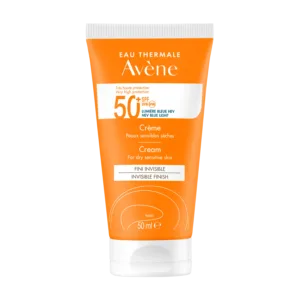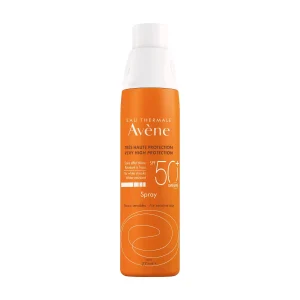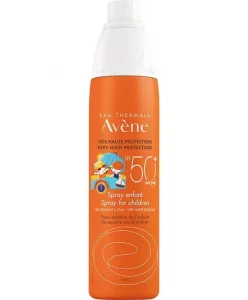
As you soak up the sun’s rays on your outdoor getaways, it’s crucial to remember the importance of outdoor sun care. The sun, while a source of warmth and vitality, can also pose risks to your skin. However, fear not, for this article is your gateway to mastering the art of outdoor sun care. From hiking through lush forests to lounging on sandy beaches, we’ll provide you with the knowledge and tools to protect your skin while enjoying the beauty of nature, with the help of the dermatologist Dr. Maha Sultan.
So, get ready to embark on your outdoor journeys with confidence, armed with the ultimate guide to outdoor sun care. Unleash the power of sun protection and embrace the wonders of the great outdoors, all while keeping your skin safe and radiant.
1- Understanding sun exposure
Before diving into sun care tips, let’s grasp a basic understanding of sun exposure. The sun emits ultraviolet (UV) radiation, comprising UVA, UVB, and UVC rays. UVA rays penetrate deep into the skin, contributing to premature aging, while UVB rays cause sunburns and can lead to skin cancer. UVC rays are mostly absorbed by the Earth’s atmosphere.
Excessive sun exposure can pose various risks to your health. Here are some potential risks associated with prolonged or unprotected exposure to the sun:
- Sunburn: Sunburn occurs when your skin is overexposed to UV radiation, particularly UVB rays. It is characterized by redness, pain, swelling, and, in severe cases, blistering.
- Premature Aging: Prolonged sun exposure can contribute to premature aging of the skin. UVA rays can penetrate deep into your skin and damage collagen fibers, leading to the appearance of fine lines, wrinkles, and age spots.
- Skin Cancer: Exposure to UV radiation is a significant risk factor for developing skin cancer.
- Eye Damage: The delicate tissues of the eyes are susceptible to UV radiation damage. Prolonged exposure to the sun without proper eye protection can increase the risk of conditions such as cataracts.
- Weakened Immune System: Excessive sun exposure can suppress the immune system, making you more susceptible to infections, viruses, and diseases.
2- Shielding with sunscreen
Sunscreen is your best friend when it comes to outdoor sun care. We’ll help you understand the importance of broad-spectrum protection and provide tips on selecting the appropriate SPF level.
When choosing the best sunscreen, consider the following factors:
- Sun Protection Factor (SPF): Look for a sunscreen with a broad-spectrum SPF of 30 or higher. SPF indicates the level of protection against UVB rays, which cause sunburns. Higher SPF values provide more protection, but it’s important to remember that no sunscreen can provide 100% protection.
- Broad-Spectrum Protection: Ensure the sunscreen offers broad-spectrum protection, which means it protects against both UVA and UVB rays. UVA rays contribute to skin aging and can cause skin cancer, so it’s crucial to choose a sunscreen that guards against them as well.
- Water Resistance: If you’ll be swimming or sweating, opt for a water-resistant sunscreen to maintain protection even when exposed to water or excessive perspiration. Dr. Maha Sultan explains that sunscreens lose their effectiveness when exposed to water. However, some sunscreens are formulated with ingredients that make them water-resistant for a certain period of time. After that time, the sunscreen is no longer effective against water and must be reapplied to regain its effectiveness.
- Skin Type: Consider your skin type and any specific concerns you may have. For sensitive skin, look for sunscreens labeled as “gentle” or “hypoallergenic.” If you have oily skin, choose a sunscreen with a lightweight, non-greasy formula. Individuals with dry skin may benefit from sunscreens containing moisturizing ingredients.
- Ingredients: Look for sunscreens with effective and safe ingredients. Zinc oxide and titanium dioxide are physical/mineral filters that sit on top of the skin and reflect UV rays. Chemical filters, such as avobenzone and octocrylene, absorb UV radiation. If you have sensitive skin or prefer natural options, mineral sunscreens may be a better choice.
Dr. Maha Sultan recommends applying sunscreen generously to all exposed skin 30 minutes before sun exposure. As a general rule, use 30 grams to cover your entire body. Reapply sunscreen after swimming, sweating, towel drying, or if it has rubbed off. Dr. Maha Sultan advises reapplying sunscreen every two hours for prolonged exposure.
Our recommendations:
For combination skin:
Eau Thermale Avène Very High Protection Fluid SPF 50+
For dry skin:
Eau Thermale Avène Very High Protection Cream SPF50+
For the body:
Eau Thermale Avène High Sun Protection Spray SPF 50+
For children’s sensitive skin:
Eau Thermale Avène Spray for Children SPF 50+
3- Dress for sun success
Wearing sun-protective clothing is highly recommended as part of a comprehensive sun protection strategy. Sun-protective clothing provides an additional layer of defense against harmful UV radiation. It offers enhanced protection for areas of the body that are often difficult to cover with sunscreen alone, such as the arms, legs, and neck. Sun-protective clothing with a high UPF (Ultraviolet Protection Factor) rating can block a significant amount of UV radiation, reducing the risk of sunburn, premature aging, and skin cancer.
4- Seek the shade
Whenever possible, seek shade, especially during the sun’s peak hours, typically between 10 a.m. and 4 p.m. Shade provides additional protection from direct sunlight.
5- Time your outdoor activities
Whenever possible, plan your outdoor activities outside peak sun hours to reduce your exposure to intense UV radiation. Dr. Maha Sultan explains that UV radiation levels are lowest in the morning, peak in the middle of the day (when the sun is overhead), and gradually decrease throughout the afternoon as the sun descends in the sky.
6- Stay hydrated
Drink plenty of water and stay hydrated, especially in hot weather. Proper hydration helps maintain overall health and supports your body’s natural defense mechanisms.
7- Practice outdoor sun care beyond summer
Sun care is a year-round commitment. Practicing sun care is important beyond the summer season. While the intensity of the sun’s rays may vary depending on the season, UV radiation can still be present and pose a risk to your skin throughout the year.
Conclusion
Outdoor sun care is the guardian of your precious skin, protecting it from the symphony of the sun. By understanding the impact of the sun, choosing the right sunscreen and protective clothing, seeking shade, scheduling your activities, moisturizing, and practicing sun care year-round, you can confidently enjoy the great outdoors while protecting your skin. So go ahead and enjoy the sun responsibly, knowing that radiant and healthy skin is yours to cherish for years to come.












